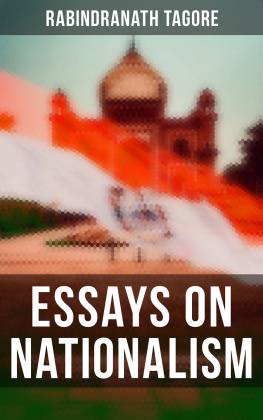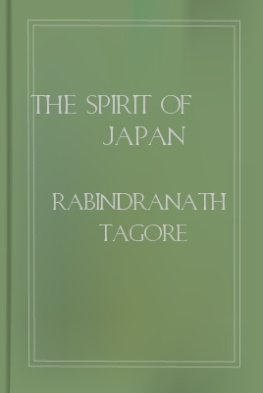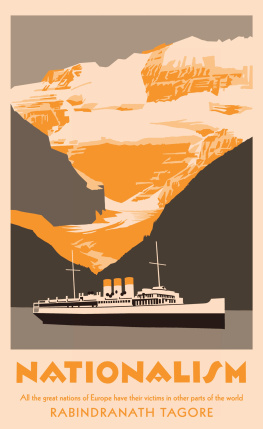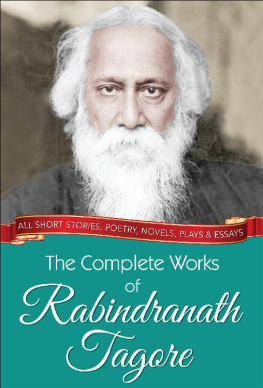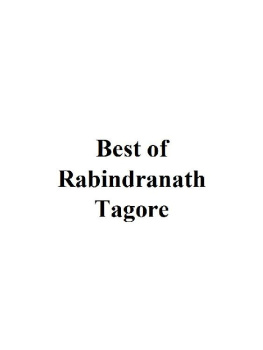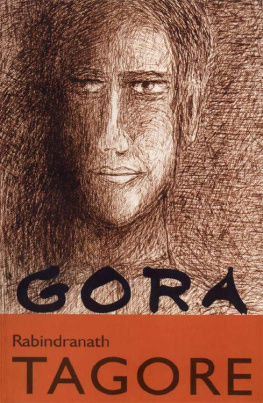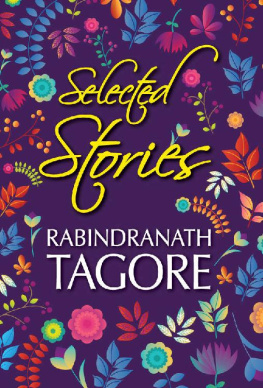Tagore Rabindranath - The Religion of Man
Here you can read online Tagore Rabindranath - The Religion of Man full text of the book (entire story) in english for free. Download pdf and epub, get meaning, cover and reviews about this ebook. year: 2022, publisher: Monkfish, genre: Science. Description of the work, (preface) as well as reviews are available. Best literature library LitArk.com created for fans of good reading and offers a wide selection of genres:
Romance novel
Science fiction
Adventure
Detective
Science
History
Home and family
Prose
Art
Politics
Computer
Non-fiction
Religion
Business
Children
Humor
Choose a favorite category and find really read worthwhile books. Enjoy immersion in the world of imagination, feel the emotions of the characters or learn something new for yourself, make an fascinating discovery.

- Book:The Religion of Man
- Author:
- Publisher:Monkfish
- Genre:
- Year:2022
- Rating:3 / 5
- Favourites:Add to favourites
- Your mark:
- 60
- 1
- 2
- 3
- 4
- 5
The Religion of Man: summary, description and annotation
We offer to read an annotation, description, summary or preface (depends on what the author of the book "The Religion of Man" wrote himself). If you haven't found the necessary information about the book — write in the comments, we will try to find it.
The Religion of Man — read online for free the complete book (whole text) full work
Below is the text of the book, divided by pages. System saving the place of the last page read, allows you to conveniently read the book "The Religion of Man" online for free, without having to search again every time where you left off. Put a bookmark, and you can go to the page where you finished reading at any time.
Font size:
Interval:
Bookmark:
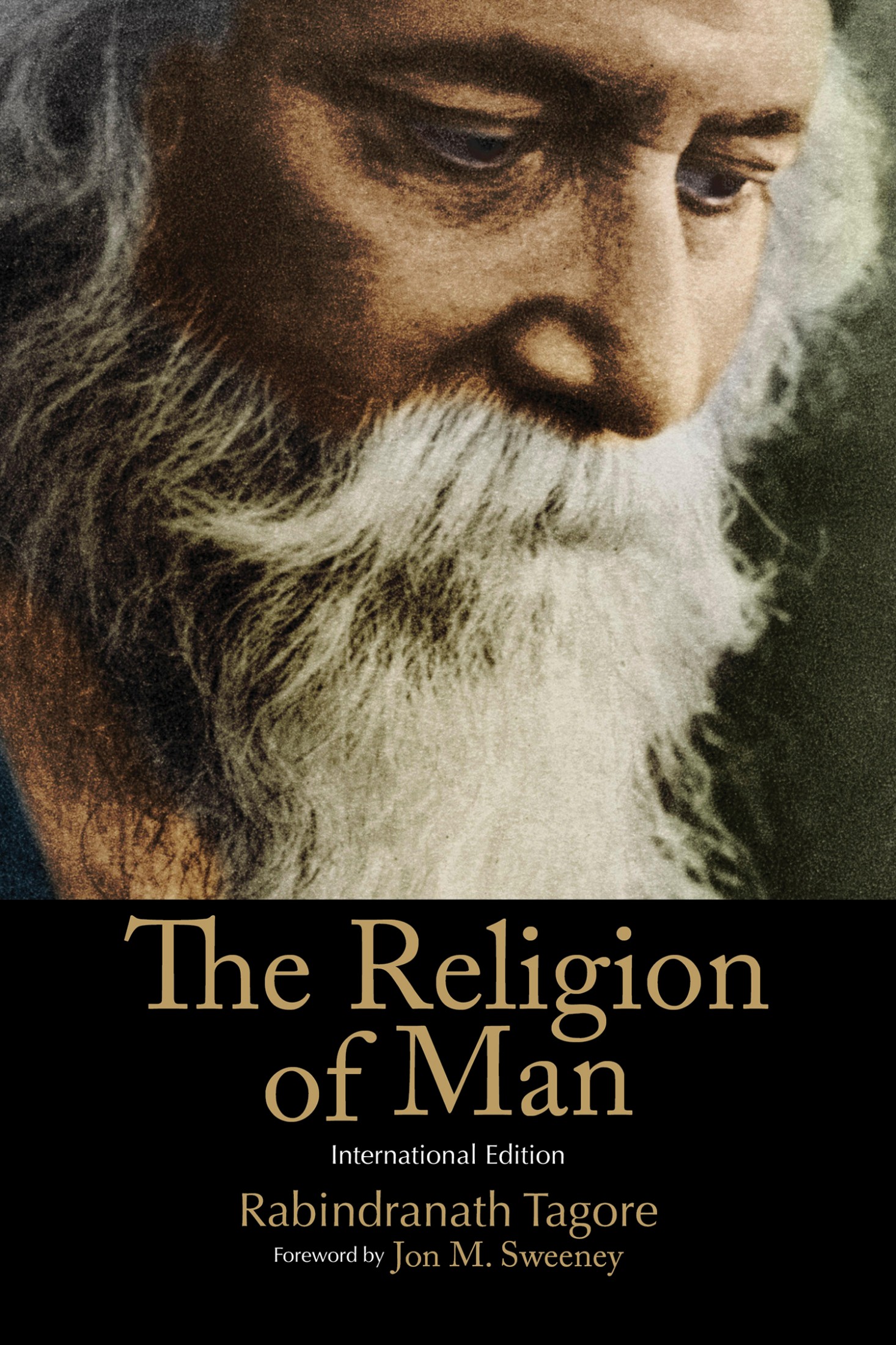


The Religion of Man: International Edition 2022 by Monkfish Book Publishing Company; Foreword to the Original Monkfish Edition 2004 , 2022 by Philip Novak; Foreword to the New Monkfish Edition 2022 by Jon M. Sweeney
All rights reserved. No part of this book may be used or reproduced in any manner without the consent of the publisher except in critical articles or reviews. Contact the publisher for information.
Paperback ISBN 978-1-948626-55-2
eBook ISBN 978-1-948626-56-9
Library of Congress Cataloging-in-Publication Data
Names: Tagore, Rabindranath, 1861-1941, author. | Sweeney, Jon M., 1967-
other.
Title: The religion of man / Rabindranath Tagore ; foreword by Jon M.
Sweeney.
Description: International edition. | Rhinebeck, New York : Monkfish Book
Publishing Company, [2022] | Includes index.
Identifiers: LCCN 2021045575 (print) | LCCN 2021045576 (ebook) | ISBN
9781948626552 (paperback) | ISBN 9781948626569 (ebook)
Subjects: LCSH: Religion.
Classification: LCC BL50 .T253 2022 (print) | LCC BL50 (ebook) | DDC
200--dc23
LC record available at https://lccn.loc.gov/2021045575
LC ebook record available at https://lccn.loc.gov/2021045576
Book and cover design by Colin Rolfe
Cover photo Rabindranath Tagore Hindu poet, 1861 - 1941 . Photograph, long white beard. Composer of Indias national anthem. Nobel Laureate by Lebrecht Music & Arts / Alarmy Stock Photo
Monkfish Book Publishing Company
East Market Street, Suite
Rhinebeck, NY 12572
(845) 876-4861
monkfishpublishing.com
Contents
I.
II.
III.
IV.
V.
VI.
VII.
VIII.
IX.
X.
XI.
XII.
XIII.
XIV.
XV.
Appendices
I.
II.
III.
IV.
Jon M. Sweeney
Foreword to the New Monkfish Edition
When my interest in Rabindranath Tagore (1861-1941) was fresh a quarter century ago, it seemed that one in four New York City taxi drivers represented the Bangladeshi diaspora. If I figured this out early in a ride, Id ask my driver, Do you like Rabindranath Tagore? The image of their faces lighting up makes me smile still. Tagore is to India and Bangladesh as Shakespeare is to English-dominant countries. Tagores work is studied by every schoolchild from Gujarat, on the Arabian Sea, to Kolkata, Tagores birthplace, on the Bay of Bengal. He didnt live to see the separation of Bangladesh from India, in August 1947, but this explains why hes the author of the national anthems of both countries.
He was born in the century of Great Britains world dominance, and he sometimes supported English rule of his people. He said that they needed education more than revolution. So, for instance, Tagore sometimes criticized the spiritualizing of Gandhis principle of satyagraha , writing: Passive resistance is a force which is not, in itself, necessarily moral. It can be used against truth as well as for it. The notion that Indians should sacrifice their educations, their families, their very lives for the cause of satyagraha was never acceptable to him.
He is still one of the worlds best-known poets, and in the East that term poet still means something far greater than a writer of verse. His best-known collection, Gitanjali, remains in print and is widely read, and sounds at times as if phrases were lifted directly from the King James Bible. Here is thy footstool, one verse begins. Thou hast made me endless, begins another. Tagore usually had a hand in translating his work into English. The poems tend to reach only those who are mystically inclined. They speak of God, the soul, and love in ways that other mystical poets such as Kabir and Gibran share. He was also a novelist, playwright, musician, visual artist, philosopher, and author of hundreds of short stories and morality tales. In 1913, Tagore was the first non-European to win the Nobel Prize for Literature.
But most of all, he is remembered for his contributions to religion and politicsthe subject of these Hibbert Lectures delivered at Oxford University in 1930.
Familiar with both East and West (he spent years living in Europe and the US), his pedagogy was multilingual, multiethnic, and multicultural. He valued all religious traditions and taught that all people could and should realize the wonders of the expansion of the human spirit. This shocked protectors of the caste system in which hed himself been raised a Brahmin.
In The Religion of Man , he attempts to overcome barriers between people, and between people of faith, knowing that religion is what often divides us. Much of what he said then seemed to be coming true when he said it, nearly a century ago, and I suspect that he would be shocked to see today how little progress we have made. For instance, he said: The God of humanity has arrived at the gates of the ruined temple of tribe. Tribes are still thriving, in my experience, and religious people who desire to move beyond them are, from generation to generation, a consistently small percentage of the whole.
Yet, Tagore isnt primarily addressing people involved in organized religion. Religion is more broadly conceived by him in ways that make more sense today than Im sure they made in 1930. Religion is not so much where we go to worship, but what we dream, create, and construct; it is our values and our creativity:
Each age reveals its personality as dreamer in its great expressions that carry it across surging centuries in the continental plateau of permanent human history. These expressions may not be consciously religious, but. This consciousness finds it manifestation in science, philosophy and the arts, in social ethics, in all things that carry their ultimate value in themselves. (chapter 3)
Tagore writes as one who has spent a lifetime as an educator, and he urges that we should be increasingly aware of how the natural, human, and divine commingle in the world. The humanity of God and the divinity of human beings are his joint preoccupation. We should develop a sense of wonder that lives beyond childhood and hold within ourselves the kinship and wondrousness of every other human being.
Prophets stand all on an equal plane: Zarathustra, Krishna, Jesus. The ultimate goal of any form of religion should be the life of human beings, and this comes most clearly to us if and when we realize that there is divinity in each one: It is for us to realize the Person who is in the heart of the All (chapter 7). This strikes me as deeply Hindu, deeply Jewish, deeply Christian, and so on.
For those who might be tempted to take Tagores wisdom in the direction of eradicating organized religion in favor of the broader vision of religion alone, take note of how he says, in chapter 13, Spiritual Freedom, that the greatest cause of misery in our lives is the obscurity of lifes significance. It is the purpose of every religious tradition and religious practitioner to communicate that significance to the world. We need this now and always.
He was a realist and a lover of truth. Embracing the world while standing with both feet firmly planted among his native people earned him the reputation of a prophet. But more importantly, and why I hope you will look past the datedness of the title of this work, Tagore was a profoundly human being. This is a book of hope for a religious future that is at the same time conscious of its cosmic origins and respectful of the needs of people everywhere.
Font size:
Interval:
Bookmark:
Similar books «The Religion of Man»
Look at similar books to The Religion of Man. We have selected literature similar in name and meaning in the hope of providing readers with more options to find new, interesting, not yet read works.
Discussion, reviews of the book The Religion of Man and just readers' own opinions. Leave your comments, write what you think about the work, its meaning or the main characters. Specify what exactly you liked and what you didn't like, and why you think so.

